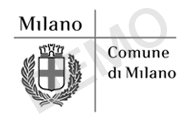‘Is that the way YOU manage?’ Alice asked. The Hatter shook his head mournfully. ‘Not I!’ he replied. ‘We quarrelled last March—just before HE went mad, you know—’ (pointing with his tea spoon at the March Hare,) ‘—it was at the great concert given by the Queen of Hearts, and I had to sing “Twinkle, twinkle, little bat! How I wonder what you’re at!” You know the song, perhaps?’ ‘I’ve heard something like it,’ said Alice. ‘It goes on, you know,’ the Hatter continued, ‘in this way:— Here the Dormouse shook itself, and began singing in its sleep ‘Twinkle, twinkle, twinkle, twinkle—’ and went on so long that they had to pinch it to make it stop. ‘Well, I’d hardly finished the first verse,’ said the Hatter, ‘when the Queen jumped up and bawled out, “He’s murdering the time! Off with his head!”‘ ‘How dreadfully savage!’ exclaimed Alice. ‘And ever since that,’ the Hatter went on in a mournful tone, ‘he won’t do a thing I ask! It’s always six o’clock now.’ A bright idea came into Alice’s head. ‘Is that the reason so many tea-things are put out here?’ she asked. ‘Yes, that’s it,’ said the Hatter with a sigh: ‘it’s always tea-time, and we’ve no time to wash the things between whiles.’ ‘Then you keep moving round, I suppose?’ said Alice. ‘Exactly so,’ said the Hatter: ‘as the things get used up.’ ‘But what happens when you come to the beginning again?’ Alice ventured to ask. ‘Suppose we change the subject,’ the March Hare interrupted, yawning. ‘I’m getting tired of this. I vote the young lady tells us a story.’ ‘I’m afraid I don’t know one,’ said Alice, rather alarmed at the proposal. ‘Then the Dormouse shall!’ they both cried. ‘Wake up, Dormouse!’ And they pinched it on both sides at once. The Dormouse slowly opened his eyes. ‘I wasn’t asleep,’ he said in a hoarse, feeble voice: ‘I heard every word you fellows were saying.’ ‘Tell us a story!’ said the March Hare. ‘Yes, please do!’ pleaded Alice. ‘And be quick about it,’ added the Hatter, ‘or you’ll be asleep again before it’s done.’ ‘Once upon a time there were three little sisters,’ the Dormouse began in a great hurry; ‘and their names were Elsie, Lacie, and Tillie; and they lived at the bottom of a well—’ ‘What did they live on?’ said Alice, who always took a great interest in questions of eating and drinking. ‘They lived on treacle,’ said the Dormouse, after thinking a minute or two. ‘They couldn’t have done that, you know,’ Alice gently remarked; ‘they’d have been ill.’ ‘So they were,’ said the Dormouse; ‘VERY ill.’ Alice tried to fancy to herself what such an extraordinary ways of living would be like, but it puzzled her too much, so she went on: ‘But why did they live at the bottom of a well?’ ‘Take some more tea,’ the March Hare said to Alice, very earnestly. ‘I’ve had nothing yet,’ Alice replied in an offended tone, ‘so I can’t take more.’ ‘You mean you can’t take LESS,’ said the Hatter: ‘it’s very easy to take MORE than nothing.’ ‘Nobody asked YOUR opinion,’ said Alice. ‘Who’s making personal remarks now?’ the Hatter asked triumphantly. Alice did not quite know what to say to this: so she helped herself to some tea and bread-and-butter, and then turned to the Dormouse, and repeated her question. ‘Why did they live at the bottom of a well?’ The Dormouse again took a minute or two to think about it, and then said, ‘It was a treacle-well.’ ‘There’s no such thing!’ Alice was beginning very angrily, but the Hatter and the March Hare went ‘Sh! sh!’ and the Dormouse sulkily remarked, ‘If you can’t be civil, you’d better finish the story for yourself.’ ‘No, please go on!’ Alice
User Login

Termini del Servizio
Termini del Servizio










